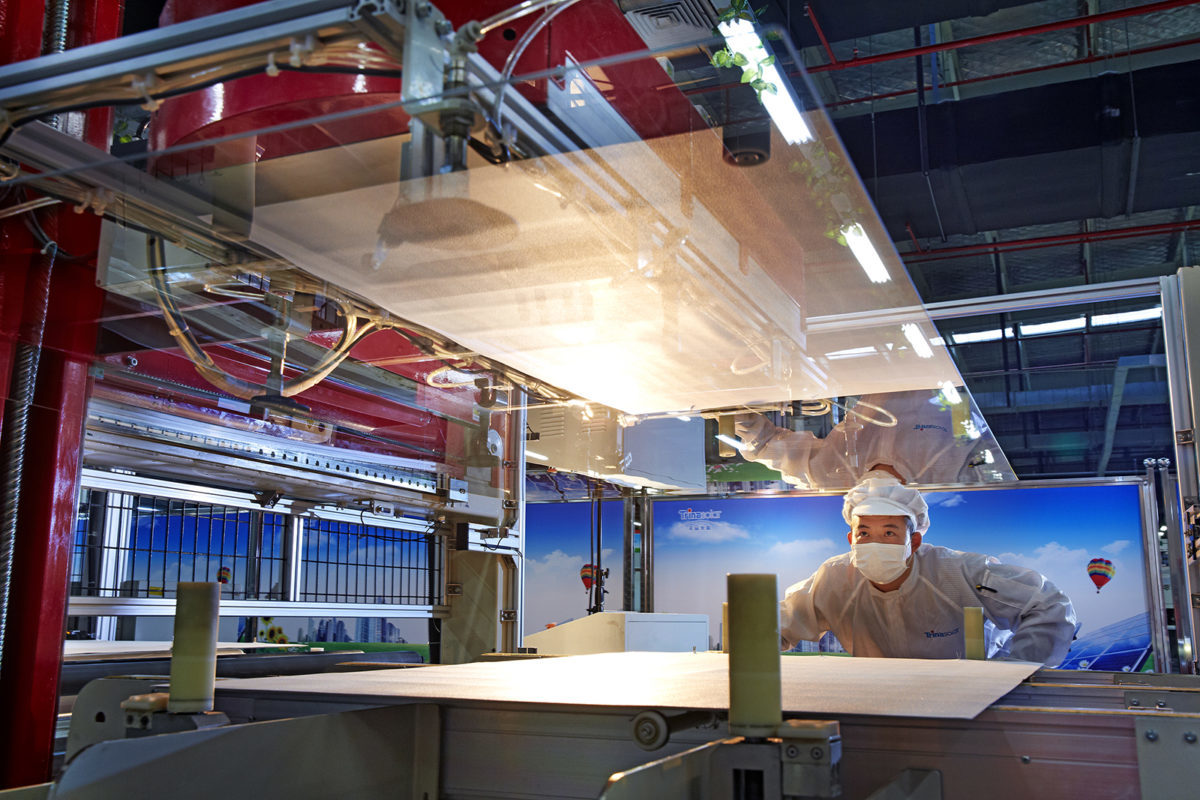Strong domestic demand for solar modules in China, allied to a pre-Section 201 rush of orders in the U.S., is pushing up module prices to around 10% more than many Indian developers had expected – a situation that could lead to a slowdown in surging Indian solar growth.
According to data compiled by PVinsights, the global spot market price for solar panels in Q2 fell at its slowest rate in almost two years. The data revealed that while modules are 10% cheaper now than at the turn of the year, the equivalent drop in 2016 was 35%.
Chinese module prices In India have actually risen in the past few weeks to approximately $0.34/W, according to independent solar market analyst Corrine Lin. This is compared to pre-June prices of around $0.32/W, she said. Many solar project developers operating in India had planned their large-scale solar projects on projected Q3 module costs of below $0.30/W, Lin adds, meaning that there is around a 10% discrepancy between their modelling and the actual price paid for Chinese solar modules.
Indian media platform Mint reports that this situation has prompted some leading Tier-1 Chinese module suppliers to renege on supply contracts, demanding an increase of around six U.S. cents per watt in revised contracts – many of which already have 25-year PPAs in place.
“Many Chinese manufacturers are going back on their contracts. They are completely reneging on the contracts signed with Indian developers,” Hero Future Energies CEO Sunil Jain told Mint.
Another Indian developer that wished to remain anonymous said that their firm finalized a contract in June for module delivery in August, but said that the Chinese supplier has since come back to renegotiate the price. “The Chinese manufacturers are aware that we have a firm deadline and that the failure to meet it will result in penalties on us, so they have resorted to this strategy,” the Delhi-based developer told Mint.
“This year, China’s solar installation volume is set to reach around 45 GW, pushing worldwide installations up to 90 GW,” Lin told pv magazine. “With the Section 201 case causing an order rush in the U.S., Q3 demand is going to be higher than Q2 demand, which has caused module prices to increase a lot in August.”
Lin added that she expects there to be a shortage of polysilicon, multi wafer and modules in China come September. “The global PV market will not be able to locate any major demand support from late September through October,” she explained, as both Chinese and U.S. demand will have weakened by then, and Indian developers may be cautiously eyeing pricing before placing orders.
As ever, though, pricing will be closely related to demand, so as demand tails off, prices will begin to fall again – which could lead to an upturn in Indian demandin Q4. “Nobody can accurately predict what will happen, but module makers believe that, at least in the U.S. in Q4, market demand will remain weak because most developers are buying enough modules now to see them through to the end of the year,” Lin said.
BNEF says that module prices in the U.S. have risen by about 20% since Suniva first brought the Section 201 case.
In India, experts believe that there could well be a short-term contraction in development as investors are scared away, but as Azure Power CEO Inderpreet Wadhwa told Mint, the best buffer to these fluctuations is to develop long-term relationships with quality suppliers. “There can be blips in terms of supply and demand. So one must think about one’s procurement strategy with suppliers having long-term goals rather than ones with transactional approach,” Wadhwa stressed.
This content is protected by copyright and may not be reused. If you want to cooperate with us and would like to reuse some of our content, please contact: editors@pv-magazine.com.








By submitting this form you agree to pv magazine using your data for the purposes of publishing your comment.
Your personal data will only be disclosed or otherwise transmitted to third parties for the purposes of spam filtering or if this is necessary for technical maintenance of the website. Any other transfer to third parties will not take place unless this is justified on the basis of applicable data protection regulations or if pv magazine is legally obliged to do so.
You may revoke this consent at any time with effect for the future, in which case your personal data will be deleted immediately. Otherwise, your data will be deleted if pv magazine has processed your request or the purpose of data storage is fulfilled.
Further information on data privacy can be found in our Data Protection Policy.